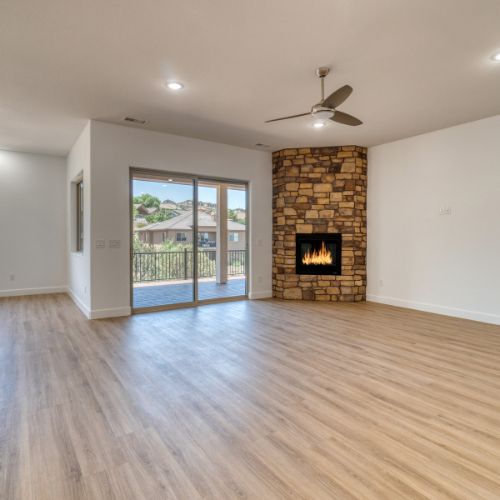Every home has differing flooring materials to make it feel complete. There isn’t one right answer, but there is a proper answer for your personal preferences.
Engineered and natural hardwood floors appear nearly the same. They’re two of the most popular flooring materials on the market. With their beautiful appearance and durable properties, the best way to decide between natural or engineered hardwood floors is to learn about their qualities.
What Are the Price Differences?
Engineered wood comes at a lower price compared to natural hardwood. Engineered wood has a tough plywood core secured to a thin piece of hardwood to give a stunning outward appearance. Therefore, homeowners only pay around $4 to $8 per square foot for the materials.
Hardwood is simply 100-percent natural solid wood. There is a demand for lumber, and it’s difficult to supply those requests. As a result, the material’s cost will range from $6 to $18 per square foot.
How Do the Materials React to Moisture?
Neither engineered nor solid hardwood are waterproof. However, engineered hardwood floors react more favorably to moisture. It’s a much more stable material that reacts better to humidity and damp areas of the house.
Solid wood has the potential to rot or warp if excessive moisture penetrates the cells. So natural hardwood is better for living rooms, hallways, kitchens, and bedrooms. Engineered hardwood is the ideal choice for basements and bathrooms where humidity is high.
Are the Floors Easy To Clean?
The way you care for these types of floors is roughly the same. Cleaning messes proactively is the best way to prevent scratches on hardwood floors. A simple sweeping and light mopping with a proper wood cleaner will leave the floors spick and span.
What Is the Average Lifespan?
Natural and engineered hardwood alike have vastly long lifespans. The minimum expectancy is 30 years, but these floors can easily surpass that estimate with proper care.
It’s also important to note that it’s possible to refinish hardwood floors and engineered hardwood in the future! Natural hardwood is thicker, so you can sand it several times. But always pay attention to the thickness of engineered floors before sanding.
Any undesirable stains or scratches can disappear by sanding the floor and refinishing. It’s a great tactic to save money on materials and retain the floors you already love.
Deciding between engineered and natural hardwood floors doesn’t have to be tough. Weigh the pros and cons of each material and determine which will make the best fit for your home.

